~ DESTINATION NINE: NORLANE ~
Urban Seed seeks to connect wherever there is need, and Geelong’s Norlane is what they have found
 As our exploratory trip of experiencing intentional communities nears its end, I am thankful that things worked out the way they have in terms of travel planning. Our last couple of communities are both very short stopovers, and while this leaves us with little more than a superficial glance into the lives of those who have often sweat blood and tears to be a part of their unique lifestyle, it comes at the right time for us when our information/road-weary selves are willing to forego “immersive experience” for “highlight version”. We are the first to admit that we feel that we are missing an opportunity with these last two groups, but perhaps it was the failure in our planning of doing too much for too long. Regardless, even experiencing a couple of days at a place like Urban Seed’s Norlane community in Geelong gives us 1000 times more value than simply reading about it.
As our exploratory trip of experiencing intentional communities nears its end, I am thankful that things worked out the way they have in terms of travel planning. Our last couple of communities are both very short stopovers, and while this leaves us with little more than a superficial glance into the lives of those who have often sweat blood and tears to be a part of their unique lifestyle, it comes at the right time for us when our information/road-weary selves are willing to forego “immersive experience” for “highlight version”. We are the first to admit that we feel that we are missing an opportunity with these last two groups, but perhaps it was the failure in our planning of doing too much for too long. Regardless, even experiencing a couple of days at a place like Urban Seed’s Norlane community in Geelong gives us 1000 times more value than simply reading about it.
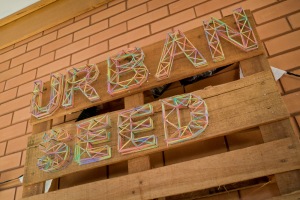 If you have been reading previous blog entries of mine, you’d know about our (also) short visit to Urban Seed city outfit in Melbourne’s CBD. There, the focus was on working within a difficult urban space to support homeless folks doing it tough. In Geelong, Norlane is that type of infamous suburb that all cities have, where much of the crime takes place and the rest of the city’s inhabitants likely take efforts to avoid. Being a Christ-centred faith community, Urban Seed’s natural place to exist in this place on the margin of society, living in amongst the Norlane families who have experienced generational poverty and have given up feeling included in “normal” society.
If you have been reading previous blog entries of mine, you’d know about our (also) short visit to Urban Seed city outfit in Melbourne’s CBD. There, the focus was on working within a difficult urban space to support homeless folks doing it tough. In Geelong, Norlane is that type of infamous suburb that all cities have, where much of the crime takes place and the rest of the city’s inhabitants likely take efforts to avoid. Being a Christ-centred faith community, Urban Seed’s natural place to exist in this place on the margin of society, living in amongst the Norlane families who have experienced generational poverty and have given up feeling included in “normal” society.
 The Norlane crew is a young bunch who occupy an old Baptist church as well as the attached hall and house. Moreso than the Melbourne group, they make me feel rather old! With everyone floating around their 20-somethings, it still never fails to impress me how people at their age have taken on such “mature” tasks like volunteering without pay to care for others, raising families in very challenging environments (and seemingly succeeding), managing difficult situations with violent locals and crime issues, plus counselling and supporting a wide cross-section of people including those with mental and physical disabilities. Like my own life, I still see one’s 20s as a time to explore, mess around and not be too serious, getting my act together once I hit my 30s. And by 30s, I really mean 40s.
The Norlane crew is a young bunch who occupy an old Baptist church as well as the attached hall and house. Moreso than the Melbourne group, they make me feel rather old! With everyone floating around their 20-somethings, it still never fails to impress me how people at their age have taken on such “mature” tasks like volunteering without pay to care for others, raising families in very challenging environments (and seemingly succeeding), managing difficult situations with violent locals and crime issues, plus counselling and supporting a wide cross-section of people including those with mental and physical disabilities. Like my own life, I still see one’s 20s as a time to explore, mess around and not be too serious, getting my act together once I hit my 30s. And by 30s, I really mean 40s.
Anyway, I digress… the space that the Norlaners occupy is an encouraging community gathering place, very loosely holding onto its “church” look and feel in favour of something that allows anyone from the community – faith-based or not – to feel comfortable and welcome. Groups stage meetings here, there’s a weekly food exchange (the “People’s Pantry” where locals pay a nominal semi-annual fee to stock up on donated food)  plus lots of sharing feasting opportunities where many people from the community come for a free feed and a chat. Like in the CBD location, all “staff” are live-in volunteers who are 1,2 or 3-year internships, with the four people (I almost called them “kids”…gosh, I am getting old) currently residing in the intern house managing the programs and reaching out to the community when they can. Many of the programs revolve around food, and wherever possible, the intern group – Steve, Cherie, Sarah and David – coordinate the meals, etc. while bringing community members in as much as possible to “own” the administering of the event, again eliminating the “hand-out” mentality. Beyond the interns there is Simon and Kaylene
plus lots of sharing feasting opportunities where many people from the community come for a free feed and a chat. Like in the CBD location, all “staff” are live-in volunteers who are 1,2 or 3-year internships, with the four people (I almost called them “kids”…gosh, I am getting old) currently residing in the intern house managing the programs and reaching out to the community when they can. Many of the programs revolve around food, and wherever possible, the intern group – Steve, Cherie, Sarah and David – coordinate the meals, etc. while bringing community members in as much as possible to “own” the administering of the event, again eliminating the “hand-out” mentality. Beyond the interns there is Simon and Kaylene  who would be the other “official” Urban Seed staff (for lack of a better word as they are encouraging the lines being blurred between them and there rest of the community) who are the “elders” of Norlane’s outfit (in their 30’s I suspect, but the term elders is not meant to be disrespectful as they come in with considerable knowledge and wisdom of how to do and not to do community based on their own lengthy experiments).
who would be the other “official” Urban Seed staff (for lack of a better word as they are encouraging the lines being blurred between them and there rest of the community) who are the “elders” of Norlane’s outfit (in their 30’s I suspect, but the term elders is not meant to be disrespectful as they come in with considerable knowledge and wisdom of how to do and not to do community based on their own lengthy experiments).
Many other households contribute a great deal to the community hub as they gain acceptance with existing residents, plus – most encouragingly – former Urban Seed interns who finished their residency but felt compelled to continue the work they were part of despite being a fairly challenged neighbourhood in terms of crime, poverty and violence. Interns Sarah and David grimly regaled us in the various unsavoury encounters the community have been victim to such as: two of the interns’ cars being stolen, the continual (even mid-day) risk of physical attack when 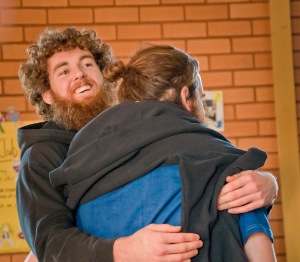 walking to the train station, the marking of houses with dogs in the yards so that they might steal them, shops that could no longer service the area after being repeatedly robbed, and so on. On my second afternoon there, I was walking the dog (keeping him close!) and two plain-clothed police (I presume? They had guns) came busting out of a yard straight towards me before veering a few metres to my left to leap onto a young lad in baggy trousers who was promptly handcuffed and shoved into an unmarked car. There was lots of yelling and other people beating a hasty retreat from the house I was now in front of as Kito and I continued along, agog at the front-row-seat activity before us. Not something we had come across in the comparatively closed communities we had been visiting to date! Despite all this, we were also told of encouraging changes within the community since they’ve been there, and a sense that they are helping bridge the divide between different groups of people here.
walking to the train station, the marking of houses with dogs in the yards so that they might steal them, shops that could no longer service the area after being repeatedly robbed, and so on. On my second afternoon there, I was walking the dog (keeping him close!) and two plain-clothed police (I presume? They had guns) came busting out of a yard straight towards me before veering a few metres to my left to leap onto a young lad in baggy trousers who was promptly handcuffed and shoved into an unmarked car. There was lots of yelling and other people beating a hasty retreat from the house I was now in front of as Kito and I continued along, agog at the front-row-seat activity before us. Not something we had come across in the comparatively closed communities we had been visiting to date! Despite all this, we were also told of encouraging changes within the community since they’ve been there, and a sense that they are helping bridge the divide between different groups of people here.
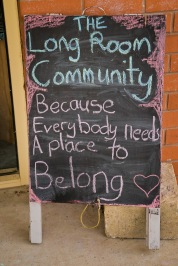 There is something appealing about being a part of a close-knit community who are trying to do something good and important to truly improve the lives of people who have had a pretty shit time of it and need a glimmer of hope to get them through life. On top of it for them, their unified Christian faith further binds them close as they journey together. I would struggle being part of this potentially powerful experience as the downside for me is the “social worker” aspect of people care for which I am not interested or cut out for, plus their spirituality isn’t where I am personally at, something I imagine that would be fairly integral to both this particular community and their ability to fight through the challenges they face. In that regard, I am thankful, humbled and awed by people like the Norlane Urban Seeders, who embody the servant-hearted characteristics of Jesus, plus epic fortitude, patience, grace and good-humour. I will continue to do my part in different ways to hopefully have a positive impact on this world, and I am glad there’s folks like the Urban Seeders to play their vital role!
There is something appealing about being a part of a close-knit community who are trying to do something good and important to truly improve the lives of people who have had a pretty shit time of it and need a glimmer of hope to get them through life. On top of it for them, their unified Christian faith further binds them close as they journey together. I would struggle being part of this potentially powerful experience as the downside for me is the “social worker” aspect of people care for which I am not interested or cut out for, plus their spirituality isn’t where I am personally at, something I imagine that would be fairly integral to both this particular community and their ability to fight through the challenges they face. In that regard, I am thankful, humbled and awed by people like the Norlane Urban Seeders, who embody the servant-hearted characteristics of Jesus, plus epic fortitude, patience, grace and good-humour. I will continue to do my part in different ways to hopefully have a positive impact on this world, and I am glad there’s folks like the Urban Seeders to play their vital role!
Find out more about Urban Seed at their website.


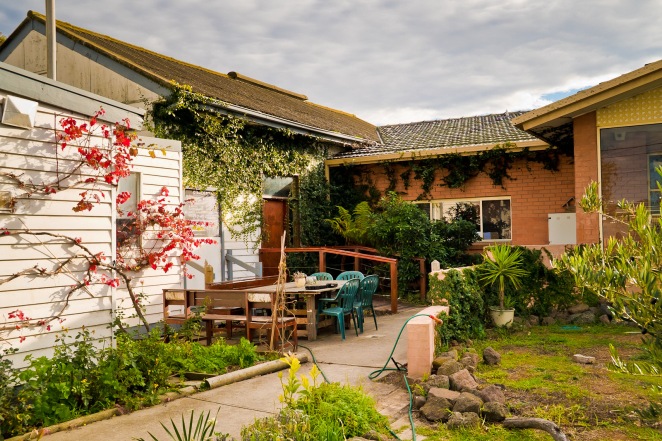
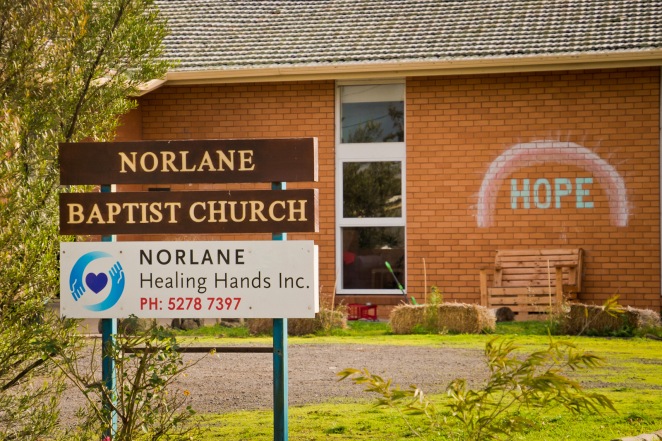
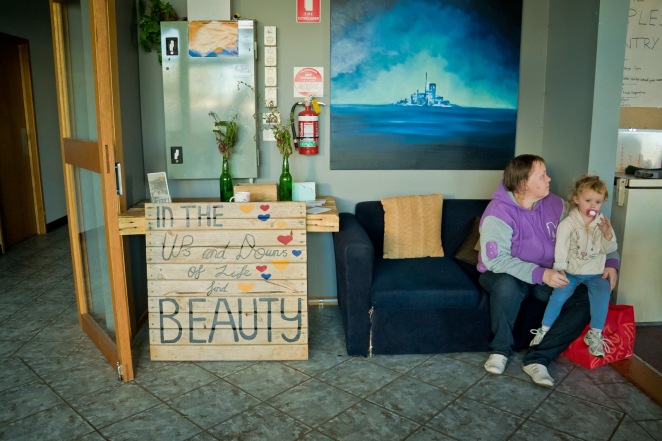
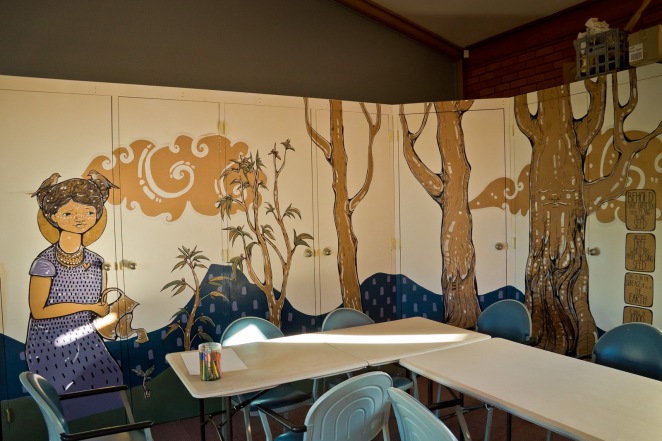
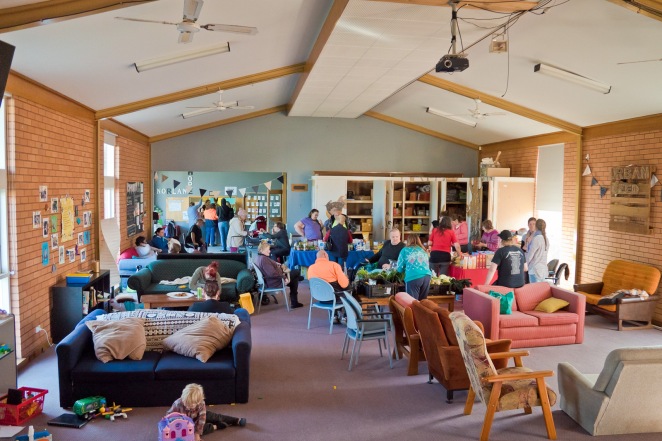
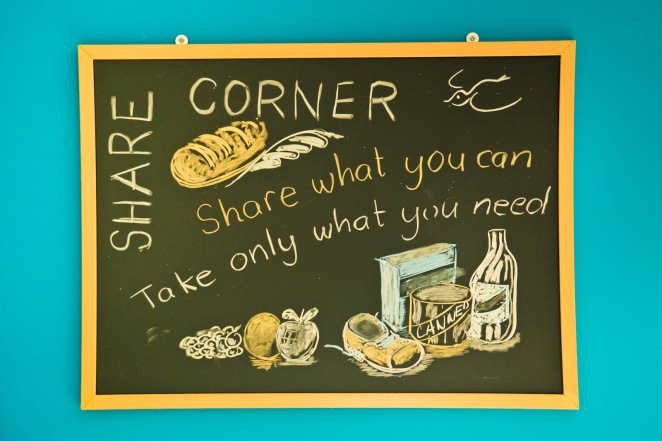

 (it’s surprising how many meals you can make when you think the cupboards are empty! In fact, during my housesitting period, I chucked out countless boxes worth of old food from people’s cupboards that could’ve saved them $$ heaps on buying new stuff when they didn’t need to…anyway, that’s another story!).
(it’s surprising how many meals you can make when you think the cupboards are empty! In fact, during my housesitting period, I chucked out countless boxes worth of old food from people’s cupboards that could’ve saved them $$ heaps on buying new stuff when they didn’t need to…anyway, that’s another story!).